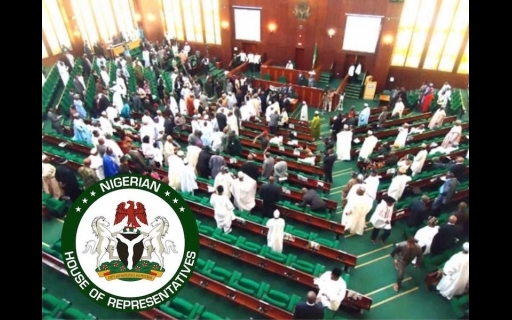Members of the House of Representatives have expressed grave concerns over the geometrical increase in the non-debt recurrent expenditure of over 800 Federal Ministries, Departments and Agencies (MDAs) over the past 13 years.
The lawmakers voiced the concerns during the debate on a motion on the need to investigate the nation’s galloping non-debt recurrent expenditure’, sponsored by Hon. Ademorin Kuye.
In his lead debate, Hon. Kuye observed that the Federal Government’s personnel expenses, pensions and other non-debt recurrent expenditures increased by 241% in 13 years from N2.4 trillion in 2011 to N8.27 trillion in 2023.
“The House also notes that the total non-debt expenditure from 2011 to 2023 is N51.97 trillion while N42.24 trillion expended from 2015 till date represents 81.8% of the total expenditures of the period under review.
“The House is aware that the country’s revenue within the period received massive hits from debt servicing obligations; the government have little or nothing left for the recurrent expenditures and has resorted to borrowing.
“The House is also aware that the Debt servicing obligations gulped 97 percent of the total revenue of the N3.42 trillion generated in 2011, Nigeria expended N3.34 trillion on debt servicing, meaning all Federal Government’s salaries, overhead and capital expenditure was financed with loans and Central Bank of Nigerian support.
“The House is informed that the country’s revenues of N3.42 trillion in 2020, N4.39 trillion in 2021 and N7 trillion in 2022 could hardly fund the wage bill of N5.7 trillion, N5.76 trillion and N7.1 trillion in 2020, 2021 and 2022 respectively.
“The House is worried that the Federal Government wage bill, pension obligations and other non-debt recurrent expenditures continue to grow significantly, despite the marginal increases in revenues and apparent increases in debt servicing pressure.
“The House is also worried that the sharp difference in the wage bill from N2.4 trillion in 2011 and N8.7 trillion in 2023 in a country of 113 million people living in multidimensional poverty is alarming and unjustifiable.
“The House is concerned that despite the present administration’s economic restructuring policies, revenues cannot continue to pay salaries and other recurrent expenditures when there are still humongous debt servicing obligations to be taken care of,” he noted.
In the bid to raise concerns, the House urged the Federal Government through the Office of the Secretary to the Government of the Federation (oSGF) to carry out a forensic audit of its staff to address the problem of ghost workers to save money and reduce the increasing wage bill.
The lawmakers also urged the Federal Government to embark on cost-cutting measures to reduce other non-debt recurrent expenditures.
In his remarks, the House Committee on Water Resources Chairman, Hon Sada Soli, who observed that the motion is a sad indictment on the National Assembly, wondered why Personnel and Recurrent expenditure has always been a no-go area in the budget process.
In the bid to address the anomalies, he called on the leadership of the 10th Assembly to ensure thorough scrutiny of these expenditures in the coming budget processes.
Hon Ahmed Jaha frowned at the failure of Employers of labour to remit the stipulated percentage into the Contributory pension purse, thereby frustrating the implementation of the Law that was supposed to protect the concerns of workers.
On his part, Hon. Ojema Ojotu underscored the need to investigate the true state of the contributory pension scheme should be ascertained.
While ruling, the Deputy Speaker, Hon. Benjamin Kalu, who presided over the session, referred the motion to the joint House Committees on Legislative Compliance, Pension and Finance for further legislative action.
. TheWitness







